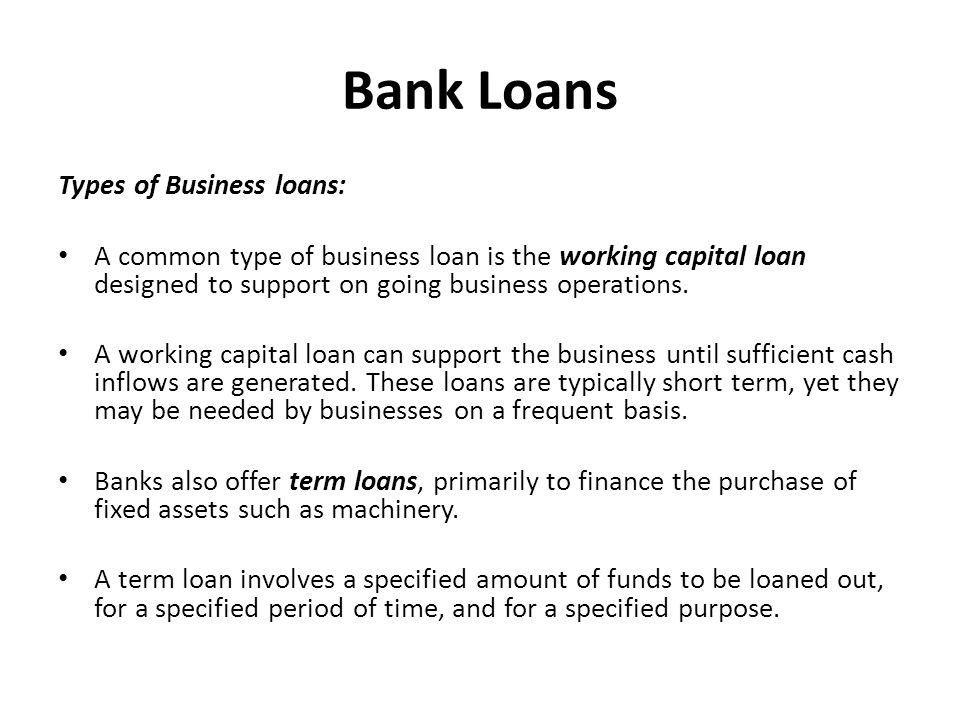Are you ready to take your entrepreneurial journey to the next level? Whether you are just starting or looking to expand your business, a bank business loan could be the fuel you need to unlock new opportunities. With a bank business loan, you can access the capital you need to invest in equipment, hire talented employees, or launch new marketing campaigns.
But it’s not just about the money. A bank business loan also provides credibility and helps establish your business as a serious player in the market. It shows potential investors and partners that you have the financial backing and commitment to succeed. With flexible repayment terms and competitive interest rates. A bank business loans can be tailored to fit your unique needs and goals.
So, if you’re ready to fuel your entrepreneurial journey and take your business to new heights, a bank business loan could be the key to unlocking countless opportunities. Let’s explore how you can secure the funding you need and propel your business forward.
3 Benefits of Bank Business Loans:

A bank business loan offers a range of benefits that can make a significant difference in your entrepreneurial journey. Firstly, it provides you with the capital needed to invest in your business. Whether you need funds to purchase essential equipment or expand your product line, a bank business loan can give you the financial boost you need. This infusion of capital can be a game-changer for your business, allowing you to seize new opportunities and grow faster. Additionally, having a bank loan can help build your business’s credit rating, making it easier to secure future financing.
Secondly, a bank business loan provides credibility and establishes your business as a serious player in the market. Potential partners, investors, and customers are more likely to take your business seriously when they see that you have the financial backing of a reputable bank. This credibility can open doors to new partnerships, investments, and collaborations, helping your business thrive.
Lastly, a bank business loan often comes with flexible repayment terms and competitive interest rates. This allows you to customize the loan to fit your specific needs and financial situation. Whether you prefer a longer repayment period with lower monthly installments or a shorter term with higher payments, a bank business loan can be tailored to your preferences. Plus, with competitive interest rates, you can save money on the overall cost of borrowing, leaving you with more capital to invest in your business.
Types of bank business loans

When it comes to bank business loans, there are various types available to suit different business needs. Understanding the different options can help you choose the loan that aligns best with your goals.
- Term Loans: Term loans are one of the most common bank business loans. They provide a lump sum of money upfront, which is repaid over a fixed period with regular installments. Term loans are ideal for financing large investments, such as purchasing equipment, expanding operations, or acquiring another business.
- Lines of Credit: A line of credit is a flexible form of financing that allows you to borrow money as needed, up to a predetermined credit limit. Unlike a term loan, you only pay interest on the amount you borrow, not the entire credit limit. Lines of credit are useful for managing cash flow fluctuations, covering unexpected expenses, or funding short-term projects.
- SBA Loans: SBA (Small Business Administration) loans are government-backed loans that banks and other financial institutions administer. These loans are designed to support small businesses and startups that may not qualify for traditional bank loans. SBA loans offer lower interest rates and longer repayment terms, making them an attractive option for entrepreneurs.
- Equipment Financing: If your business requires specialized equipment, such as machinery, vehicles, or technology, equipment financing can be a suitable option. This type of loan allows you to borrow money specifically for purchasing equipment. The equipment itself serves as collateral, reducing the lender’s risk and potentially leading to more favorable terms.
- Commercial Mortgages: Commercial mortgages are loans used to finance the purchase or refinancing of commercial properties, such as office buildings, retail spaces, or warehouses. These loans typically have longer repayment terms compared to other types of bank business loans.
Eligibility requirements for bank business loans

While the specific eligibility requirements may vary between lenders and loan types, there are some common criteria that businesses must meet to qualify for a bank business loan. Here are a few key factors that lenders typically consider:
- Credit History: Lenders will assess your personal loan and business credit history to evaluate your creditworthiness. A strong credit history demonstrates your ability to manage debt responsibly and increases your chances of loan approval.
- Business Financials: Lenders will want to review your business’s financial statements, including profit and loss statements, balance sheets, and cash flow statements. These documents provide insights into your business’s financial health and ability to repay the loan.
- Collateral: Depending on the loan type, lenders may require collateral as security for the loan. Collateral can be business assets, such as real estate, equipment, inventory, or accounts receivable. By providing collateral, you give the lender a way to recover their funds if you default on the loan.
- Business Plan: Lenders often require a comprehensive business plan that outlines your company’s mission, target market, competition, financial projections, and growth strategies. A well-prepared business plan demonstrates your understanding of your business and industry, as well as your ability to generate revenue and repay the loan.
- Industry Experience: Lenders may consider your industry experience and expertise when evaluating your loan application. Demonstrating a deep understanding of your industry and having a proven track record can increase your credibility and reassure lenders of your ability to succeed.
How to apply for a bank business loan?
Once you’ve determined that a bank business loan is the right financing option for your business, it’s time to start the application process. Here are the steps to follow when applying for a bank business loan:
- Gather Required Documents: Before applying, gather all the necessary documents that lenders typically request, such as financial statements, tax returns, bank statements, business licenses, and legal documents. Having these documents readily available will streamline the application process.
- Research Lenders: Research and compare different lenders to find the ones that specialize in your industry and offer favorable loan terms. Consider factors such as interest rates, repayment terms, fees, and customer reviews. Look for lenders with a track record of supporting businesses similar to yours.
- Prepare a Business Plan: Develop a comprehensive business plan that provides a clear overview of your business, its market, and its growth potential. Include financial projections, marketing strategies, and an analysis of your competition. Your business plan should convince lenders that your business is a sound investment.
- Complete the Loan Application: Fill out the loan application form provided by the lender. Be thorough and accurate, providing all the requested information. Double-check the application for any errors or omissions before submitting it.
- Submit Required Documentation: Along with the loan application, submit all the required documents as outlined by the lender. This may include financial statements, tax returns, business licenses, and any other supporting documentation they request. Ensure that all documents are complete and organized.
Tips for getting approved for a bank business loan

Obtaining approval for a bank business loan can be a competitive process, with lenders carefully assessing your application and financials. To increase your chances of approval, consider the following tips:
- Maintain a Strong Credit History: A strong credit history is crucial for loan approval. Make timely payments on existing debts, keep your credit utilization low, and address any errors on your credit reports. If your credit score needs improvement, work on building positive credit habits before applying for a bank business loan.
- Prepare a Solid Business Plan: A well-prepared business plan demonstrates your understanding of your business, its market, and its growth potential. Tailor your plan to the specific loan you’re applying for, highlighting how the loan will help you achieve your goals. Be thorough, concise, and persuasive in your plan.
- Improve Your Financial Statements: Lenders closely examine your financial statements to assess your business’s financial health. Ensure your financial statements accurately reflect your business’s performance and consider working with an accountant to prepare them if needed. Highlight positive trends and address any areas of weakness.
- Build Relationships with Banks: Building relationships with banks before applying for a loan can be beneficial. Establishing a history of responsible banking, such as maintaining a business account and repaying previous loans on time, can increase your credibility and make lenders more willing to approve your loan.
- Consider Collateral: If possible, offer collateral to secure the loan. Collateral reduces the lender’s risk and can lead to more favorable loan terms. Identify valuable business assets that can serve as collateral and understand their estimated value.
Factors to consider when choosing a bank for your business loan?
Choosing the right bank to secure your business loan is a crucial decision that can impact your entrepreneurial journey. When evaluating different banks, consider the following factors:
- Lending Experience: Look for banks that have experience in lending to businesses in your industry. An understanding of your specific industry can make the loan process smoother and increase the likelihood of loan approval. Research the bank’s track record and success rate in lending to businesses similar to yours.
- Loan Terms and Interest Rates: Compare the loan terms and interest rates offered by different banks. Look beyond the interest rate to understand the overall cost of borrowing, including any additional fees or charges. Consider the repayment terms, flexibility, and penalties for early repayment. Choose a bank that offers favorable terms that align with your business’s cash flow and growth plans.
- Customer Service and Support: Evaluate the bank’s customer service and support. A responsive and knowledgeable team can make a significant difference in your loan experience. Look for a bank that is accessible, proactive, and willing to address your questions and concerns. Read customer reviews and ask for recommendations from other business owners.
- Technology and Digital Banking: In today’s digital age, technology plays a vital role in banking. Consider the bank’s digital banking capabilities, such as online banking, mobile apps, and electronic payment options. A bank with robust digital tools can streamline your banking experience and make it easier to manage your loan and finances.
- Additional Services: Some banks offer additional services that can benefit your business, such as business advisory services, networking events, or access to business resources. These value-added services can provide support and guidance beyond just the loan, helping your business thrive.
Conclusion
In conclusion, securing a business loan from a bank can be a pivotal step in propelling your entrepreneurial journey to new heights. The financial support provided by a bank can empower you to invest in essential resources, expand your operations, and navigate the challenges of business growth. Beyond the monetary aspect, establishing a positive relationship with a bank can open doors to valuable financial advice and networking opportunities.
However, it is crucial to approach the loan process with careful consideration, ensuring that you fully understand the terms, have a solid business plan, and are prepared to meet the responsibilities that come with borrowing. When utilized wisely, a bank business loan can catalyze innovation, sustainability, and overall success in your entrepreneurial endeavors. Remember, it’s not just about obtaining funds; it’s about leveraging them strategically to build a thriving and resilient business.















